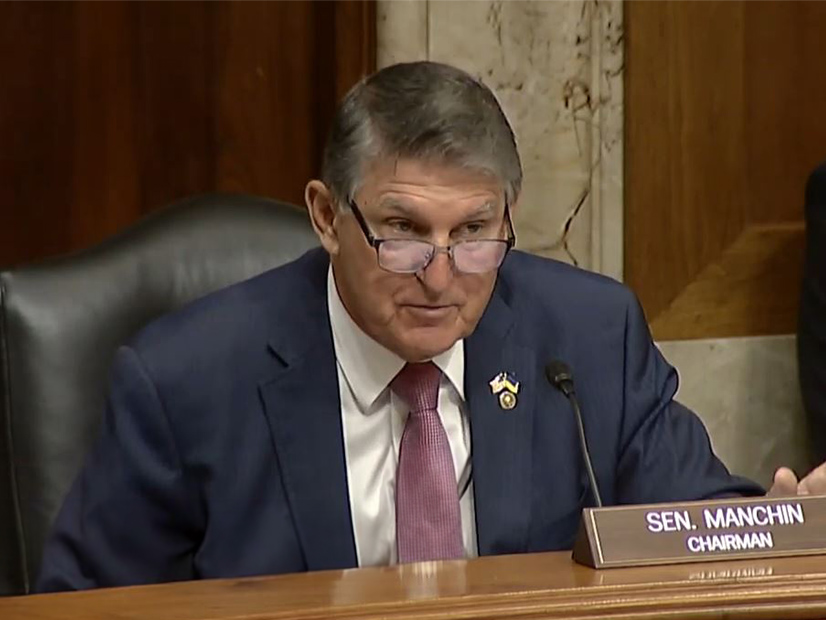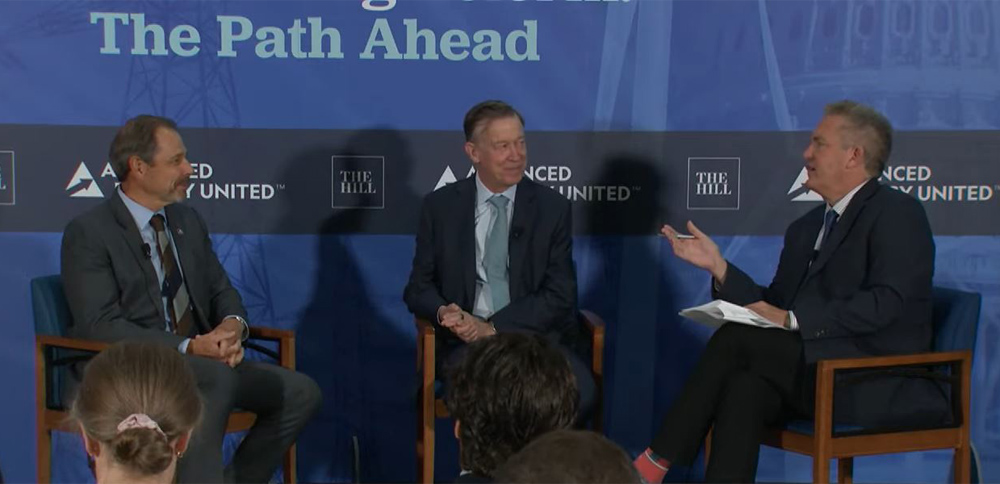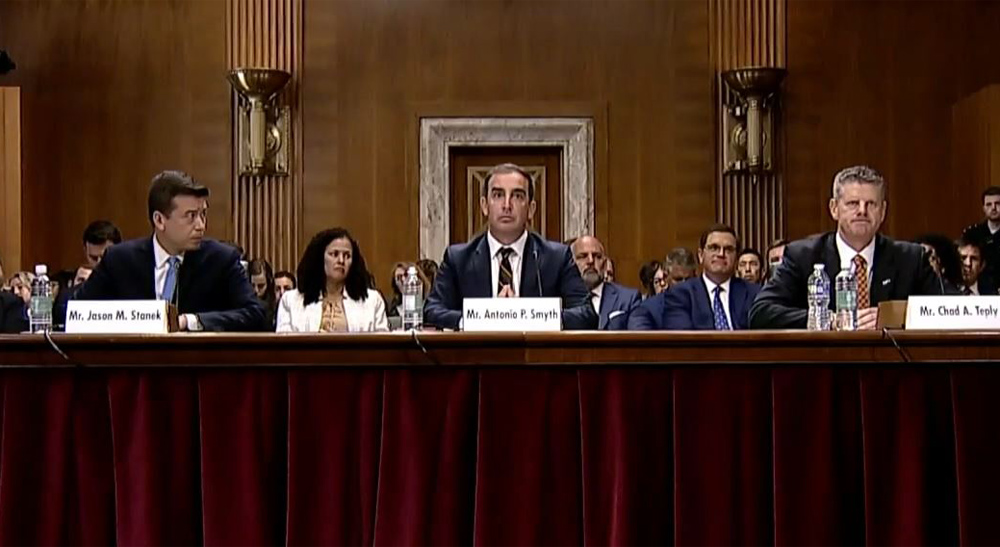Congress has been talking about changing permitting laws this year, but it’s still unclear whether the two parties will be able to strike a deal, speakers said at an event Wednesday hosted by The Hill and Advanced Energy United at the National Press Club in D.C.
Sen. John Hickenlooper (D-Colo.) is working on the BIG WIRES Act, which would require minimum transfer capability between regions. That would benefit the entire country by making cheaper power supplies available and facilitating the shipping of more power to regions facing reliability crises, he said at the event.
“Certainly, it’s a steep hill these days, because both sides are worried about giving any advantage to the other side, rather than solving the problems,” Hickenlooper said. “I think the BIG WIRES is about trying to make sure that we can get the power to where it’s needed.”
That and other reforms are being debated, but the question is whether Congress can actually pass them — either on their own, or as part of some must-pass legislation, as happened with the first bite of the apple during the debt ceiling showdown. (See Debt Ceiling Bill Provides Mini-deal on Permitting.)
“I haven’t given up my hope for this Congress right now,” said Rep. John Curtis (R-Utah). “There are some great ideas out there.”
Any policies that do wind up getting past the Republican side at least will have to go through “regular order,” meaning the relevant committees will have to examine them and pass them, even if they go into some kind of must-pass budget deal, he added.
“There’s something therapeutic for a member, if he doesn’t understand an issue, that it’s gone through committee hearings, that his colleagues have had a chance to digest it; to read every line and study every line; and that they support it,” Curtis said.
A final rule from FERC on interconnection queue reform is expected at its open meeting Thursday, and rules on transmission planning and implementing its new backstop siting authority are still pending. While Hickenlooper noted the commission might be able to act faster than Congress, Curtis argued regulatory changes could prove transitory.
“If we don’t do it, legislatively, it’s not permanent,” Curtis said. “And it’s subject to change. … If we get a different administration, in two years, you’re starting over. And I think it’s harder to do it legislatively, but it’s more long-lasting if we can do it.”
FERC is not the only agency working on the issue, with the Department of Energy’s Grid Deployment Office in charge of $26 billion in spending to help expand the transmission grid, said its director, Maria Robinson. With new factories and other sources of demand sprouting up around the country, along with major changes in power supply, new transmission needs to be built.
“Now part of this is, transmission is not cheap,” Robinson said. “I think that’s something that we can all agree on. And we want to make sure that we’re planning appropriately, whether it’s across different regions or across different state lines, to make sure that we’re doing it really efficiently and cost effectively for the American people so that no one is paying for lines that are duplicative or unnecessary.”
For too long, planning the grid has been too ad hoc and decentralized, with transmission plans focused on curing immediate reliability needs and not paying attention to the future, said Kyle Davis, director of U.S. federal policy for Enel North America.
“It’s good news that people are even uttering the word ‘transmission’ in the halls of Congress,” Davis said. “For those of us that have been working on this issue for over 10 years or so, it is refreshing. I think the hope is that we can get some real fundamental movement and sort of comprehensive transmission investment strategy for the United States.”
Permitting on Federal Land
Meanwhile, members of the Senate Energy and Natural Resources Committee debated permitting reform on federal lands. Much of the Wednesday was devoted to oil and gas permitting, but Chair Joe Manchin (D-W.Va.) made sure to include transmission in the discussions.
“Over the last year there has been an attempt to paint transmission permitting reform as just another subsidy for intermittent renewable energy,” Manchin said in his opening statement. “If that were the case, then that would be very hard for a lot of us to support. But this simply isn’t true, and we should not politicize infrastructure that has long enjoyed bipartisan support.”
Manchin argued the importance of transmission for reliability, “particularly during weather events that span hundreds of miles. Long-distance transmission and interconnectivity enables power to move to where it’s needed. And as we’ve seen in Texas and other parts of the country, the areas that need the power aren’t just blue states with aggressive climate targets that some of us may not agree with.”
Ranking Member John Barrasso (R-Wyo.) agreed, somewhat.
“The biggest threat to reliability is not the lack of transmission lines. It is the premature retirement of coal, natural gas and nuclear power plants,” Barrasso said in his opening statement. “Congress should not try to force electric customers in rural, inland states, such as Wyoming and West Virginia, to subsidize ill-conceived policies of coastal states, such as California and New Jersey. If California, New Jersey or New York want to rely on offshore wind, then their customers should pay for it.”
Manchin noted that while the debt ceiling deal limited environmental reviews under the National Environmental Policy Act, judicial proceedings over those reviews still can tie up projects long after they’ve been approved. Witnesses at the hearing generally agreed that it was necessary for Congress to set tighter deadlines for parties to file challenges, for courts to reach decisions and for agencies to fix the issues identified by the courts.
“I think a shot clock is important,” former Maryland Public Service Commission Chair Jason Stanek said. “Legal due process for the state who is out of favor is important … but that should not go on ad infinitum for potentially years at a time, so I think a statute of limitations is necessary.








